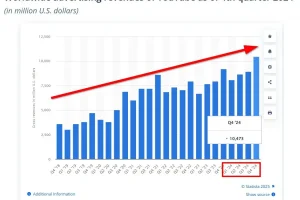Recessions are inevitable, and recessions present an ideal opportunity to take steps toward financial preparedness. This could involve cutting expenses, setting aside emergency savings and diversifying investments.
Cut back without depriving yourself: small changes like cooking more meals at home, spacing out haircut appointments and restricting streaming services can all help you create savings without depriving yourself.
1. Create a budget
Prepare financially for an impending recession by reviewing expenses and increasing savings. Setting monthly savings goals and working toward them are effective steps toward financial security.
Start slowly by cutting back on non-essential expenses like eating out or subscription services. If this frees up money for investing purposes, consider recession-proof assets which won’t fall in value during economic fluctuations.
Make sure that three to six months’ of expenses are saved in an emergency fund in case of unexpected events that require selling long-term investments during downturns, which would prevent losses from becoming permanent and derail the growth of retirement savings.
2. Create an emergency fund
As part of an effort to protect yourself financially in times of economic downturn, experts advise establishing an emergency fund. Experts advise keeping three to six months’ of expenses saved up in an emergency fund should an unexpected calamity occur and prevent it from snowballing into debt crisis.
Start by calculating your monthly expenses – such as housing, utilities, transportation and food – then multiply this total by three or six to determine your savings goal.
Once you know your number, the next step should be finding ways to cut costs and save more. Carpooling or taking public transit could reduce fuel costs; other ways could include cutting unnecessary purchases or cutting lifestyle creep; make sure your emergency funds are easily accessible by keeping them in an account that won’t penalize withdrawals – something a liquid account allows.
3. Invest in your future
Investing in yourself can be an effective way to protect your finances during an economic downturn. Consider continuing education or training courses related to areas you find enjoyable; expanding your skill set could make you more appealing as an employee, improving job security during a recession.
Saving and investing are great ways to protect your finances against recession. The sooner you begin investing, the faster your money can grow through compound interest over time. No matter if retirement is just around the corner or decades away – there are numerous investment options available when considering investing.
Some investments, like real estate and fixed-indexed annuities, tend to outshone others during economic downturns, like real estate and fixed annuities. Speak with your financial advisor about these strategies as well as ways you can safeguard a recession-proof future.
4. Pay off high-interest debt
If you have high-interest debt balances, paying them off could help lower overall spending and save money. Begin by reviewing your budget, eliminating unnecessary expenses and working to pay down your debt faster than you ever imagined possible.
The debt snowball method involves gradually paying down your smallest debts while making minimum payments on other obligations. When one debt has been cleared off, payment of another one becomes due and so on until all debts have been satisfied. Although this strategy can be motivating and help make progress more tangible over time, some individuals may become disenthralled and give up.
An alternative option would be obtaining a personal loan to pay off the credit cards and reduce their associated interest payments.
5. Save for retirement
To protect their retirement savings from imminent recessions, people need to start saving as early and frequently as possible. To do this, start saving early.
Do not fall for promises of 20% returns in your retirement accounts and instead focus on building a diversified portfolio, in which one investment may fall while others rise in its place. Furthermore, consider purchasing an annuity with guaranteed income streams you cannot outlive.
Consider cutting spending on non-essentials such as entertainment and cable to save more money. Downsize your housing costs and reduce living costs by moving to less costly cities or states, pay down credit card debt to free up cash for savings, consolidate IRAs into one easy account so fees are decreased and so forth.








